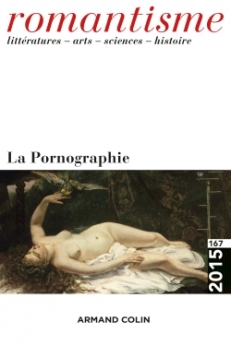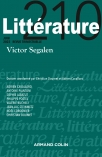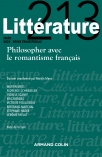
Romantisme n° 167 (1/2015)
Pour acheter ce numéro, contactez-nous
Recevez les numéros de l'année en cours et accédez à l'intégralité des articles en ligne.
Alphonse Esquiros (1812-1877) produisit entre 1830 et 1851 une oeuvre abondante, indéniable témoignage sur lemouvement romantique et la pensée républicaine. Belle manifestation du « Temps des prophètes », elle mêle inextricablement ambitions littéraires, visées politiques et considérations religieuses dans l’espoir de fonder une nouvelle synthèse en mesure de décrypter un avenir incertain. L’analyse de cette oeuvre se concentre en priorité sur De la vie future au point de vue socialiste, publié en 1850. L’ouvrage signale à la fois l’apogée et le crépuscule de cette volonté de synthèse qui, se heurtant aux démentis de la réalité, révèle une impasse de la pensée de la démocratie, mais interroge aussi le désarroi religieux d’une génération inquiète de l’avenir et d’abord en quête d’harmonie entre les héritages du passé et les virtualités du présent.
Of Alphonse Esquiros’ (1812-1877) numerous works, those produced between 1830 and 1851 are witness to both Romanticism and Republicanism. His work is a significant manifestation of the “time of the prophets” and inextricably fuses literary ambition, political intention and religious reflexion, in the hope of creating a new synthesis capable of showing a way through to an uncertain future. This analysis of Esquiros’oeuvre focuses principally on De la vie future au point de vue socialiste, published in 1850. The work forms both the acme and the end of this search for a synthesis, which, confronted with reality, shows up an impasse in the reflexion on democracy but also confronts the religious confusion of a generation worried about the future and anxious to find harmony between the inheritance of the past and the possibilities of the present.

